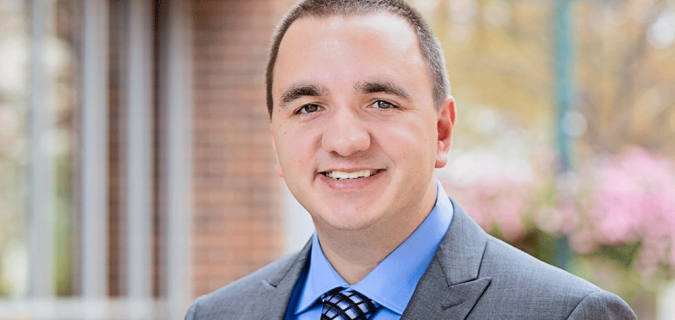Founder of MarketBeat.com, co-founder at GoGo Photo Contest and USGolfTV, Chairman of Falls Angel Fund. Follow him @MatthewDP.
Who is your hero? (In business, life, or both.)
My business hero is Pat Flynn of Smart Passive Income. I don’t idolize him or his businesses per se, but he was one of the first to create the path and show that it was possible to make a seven-figure annual income from an internet business that has no employees and no physical location. His monthly income reports have provided inspiration about what’s possible to me and many others.
What’s the single best piece of business advice (unorthodox tips welcome!) that helped shape who you are as an entrepreneur today, and why?
In 2010, I was listening to a podcast called Internet Business Mastery. The hosts, Jason Van Orden and Jeremy Fransden, stressed the importance of building an audience and building an email list as the single primary asset in your business. They argued that if your entire business was crumbling around you, you could still always come up with a new product and market it to your email list. My business had a lot of ups and downs at the time, so the idea of a consistent revenue stream and marketing channel was a dream come true to me. We immediately began building an email list. Six years later, we now have more than 425,000 people that have subscribed to our daily newsletter. I’ve also written a book that outlines the email marketing strategies that I use called Email Marketing Demystified.
What’s the biggest mistake you ever made in your business, and what did you learn from it that others can learn from too?
The biggest mistake that I ever made was relying too heavily on a single marketing channel. For the first several years of our business, most of our web traffic came from a single source (organic referrals from Google search). In 2011, Google began modifying the algorithm that they use to determine search rankings and personal finance and investing websites like mine took a big hit. We lost 40 percent of our traffic overnight and revenue immediately took a nose dive. Eventually, we were able to recover by focusing on acquisition channels, but it was a major hit to our business.
I think the key takeaway from this experience is that if you want your business to stick around for the long term, you can’t be too reliant on any one marketing channel or supplier. I currently try to make it so that no one acquisition source is responsible for more than 25 percent of my business at any given time.
What do you do during the first hour of your business day and why?
My “first hour of the day” starts the night before. I make a list of tasks I want to complete the following day so that I can think about them a bit at night and give my subconscious a chance to think about them while I’m sleeping. When I get up in the morning, I immediately put on my running shoes, prop my laptop up on my treadmill and pound out an hour of solid work while walking at three miles an hour. I use the “eat that frog” strategy and complete the task that appears the hardest first and the rest of the day gets easier from there.
What’s your best financial/cash-flow related tip for entrepreneurs just getting started?
Don’t do your own accounting and legal work. It’s tempting to try to do these things yourself when you’re first getting started because you don’t have a lot of money sitting around, but you will invariably screw something up that will cost you a lot of money. When I was first getting started, I elected to be an S-corp but failed to run payroll and pay myself a salary. When I realized the mistake, I had to re-do three years worth of state and federal tax forms to correct the issue. I owed additional taxes, late penalties and had to pay several hundred dollars to an accountant that took pity on me and helped me correct the issue.
Quick: What’s ONE thing you recommend ALL aspiring or current entrepreneurs do right now to take their biz to the next level?
Test raising your pricing. You might find out that just as many people will buy your product if it cost 10 percent more than it does right now and immediately see a 10 percent increase in sales. Many entrepreneurs undervalue what they sell and trying out different prices will show what your products and services are really worth.
What’s your definition of success? How will you know when you’ve finally “succeeded” in your business?
For me, it’s the freedom and opportunity to live life on my own terms without having to answer to a boss or show up to work on any given day if I don’t want to. This means being fully self-employed, as I have been for the last four years, and having a team in place to run the day-to-day operations for your business (which I have for the last 12 months). I am already successful by this definition. Over the long term, I am working to build a portfolio of dividend-paying stocks that will cover my family’s living expenses so that I can be 100 percent independent of relying on income from my business.













